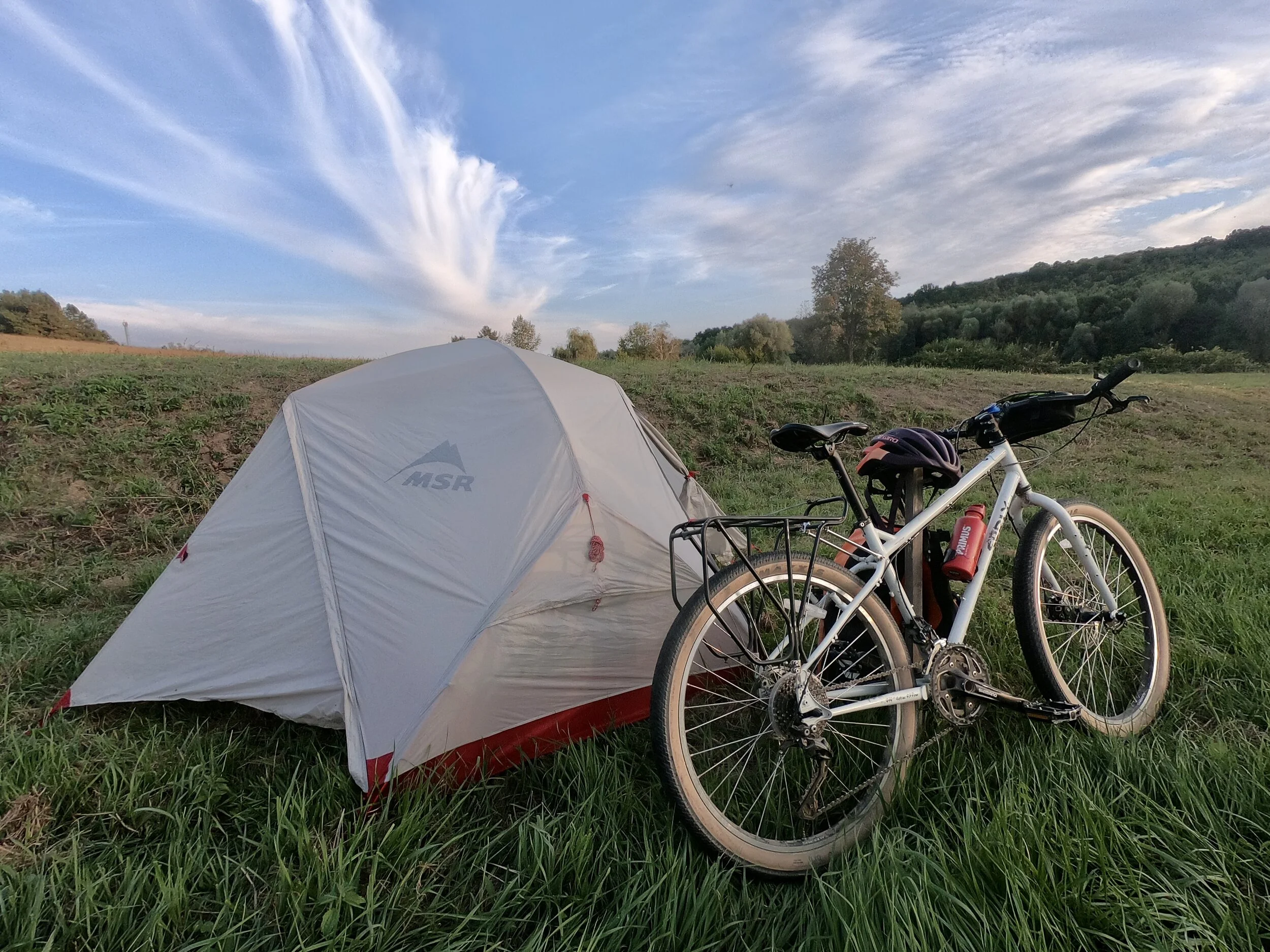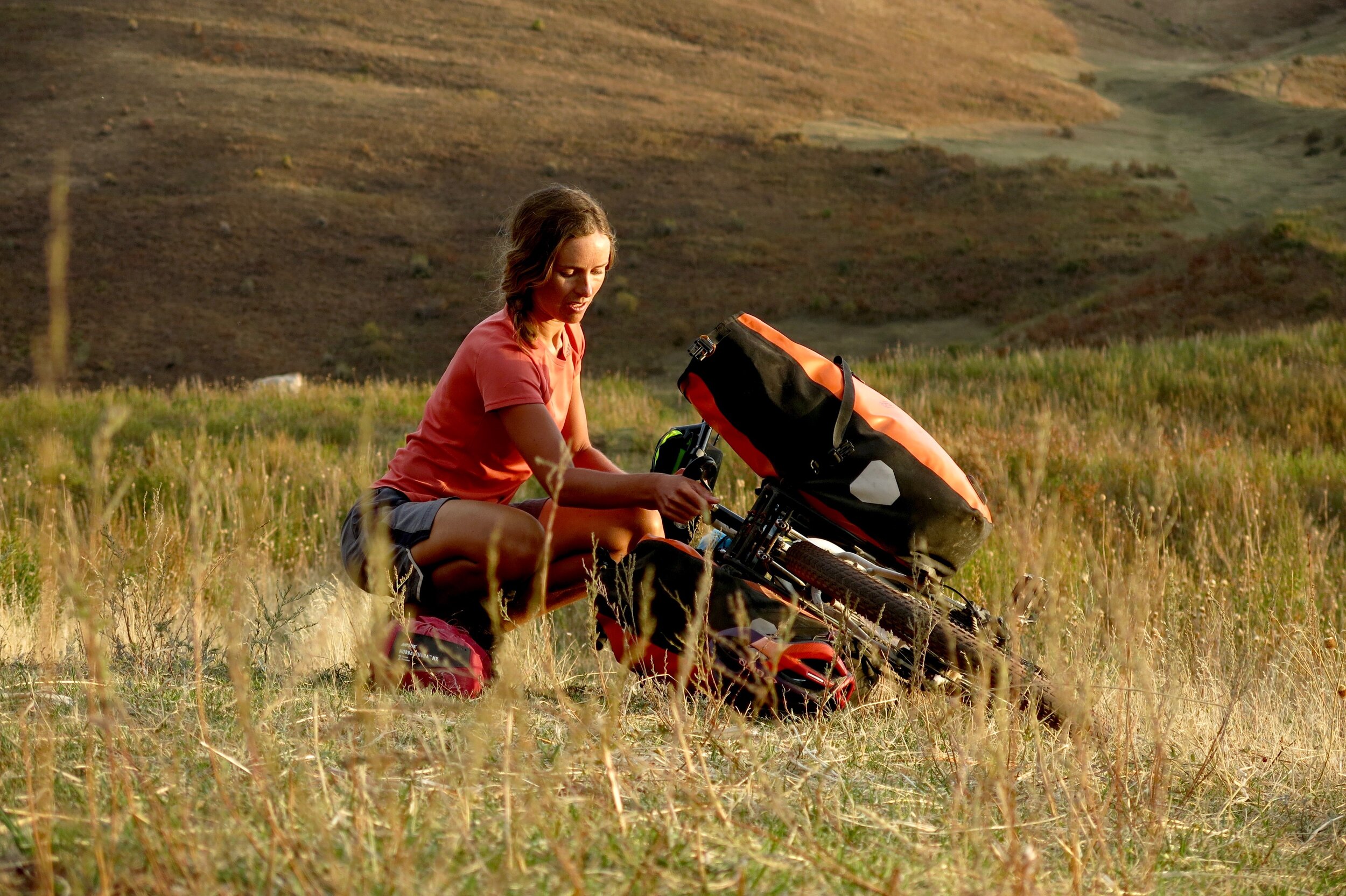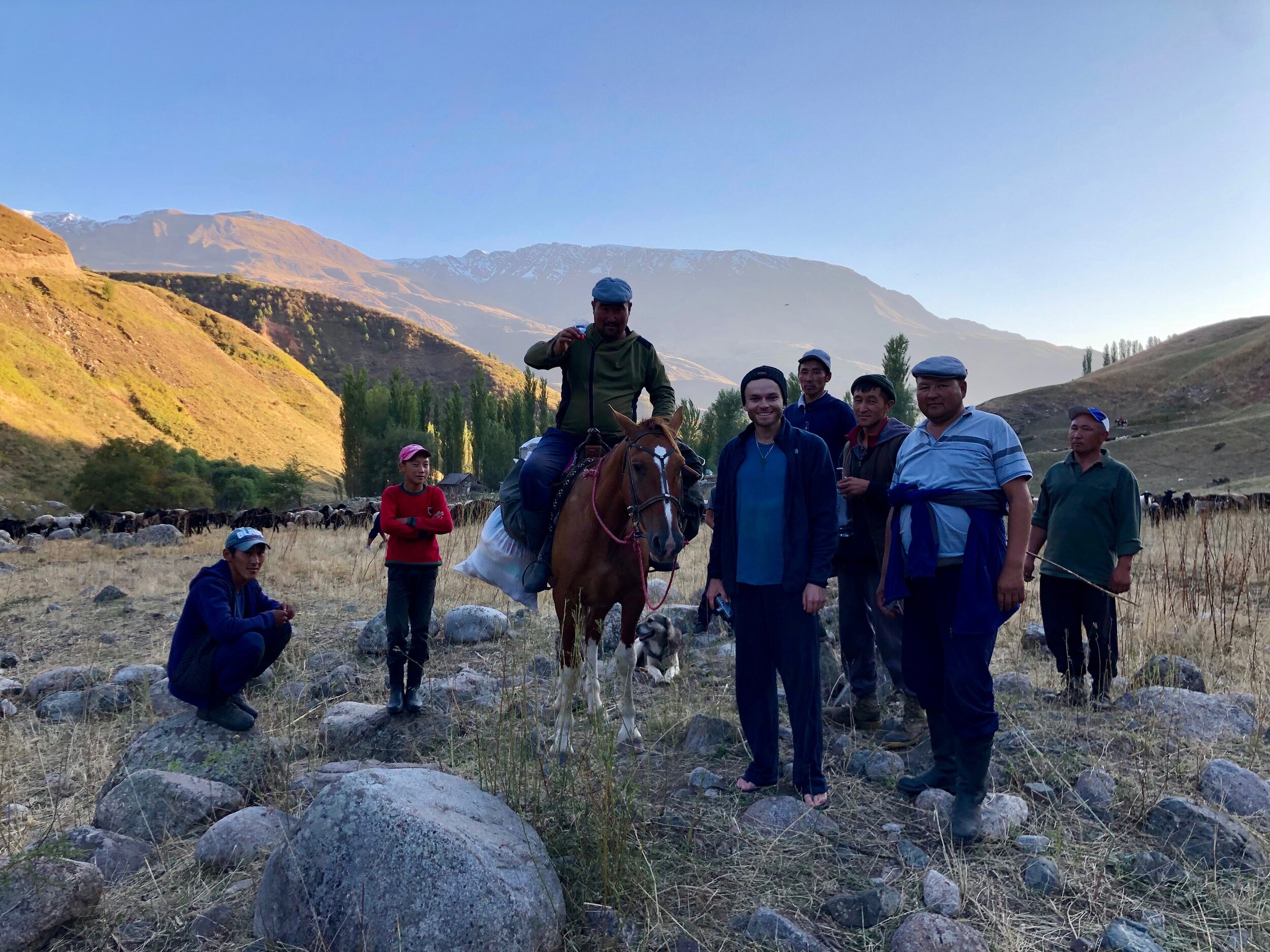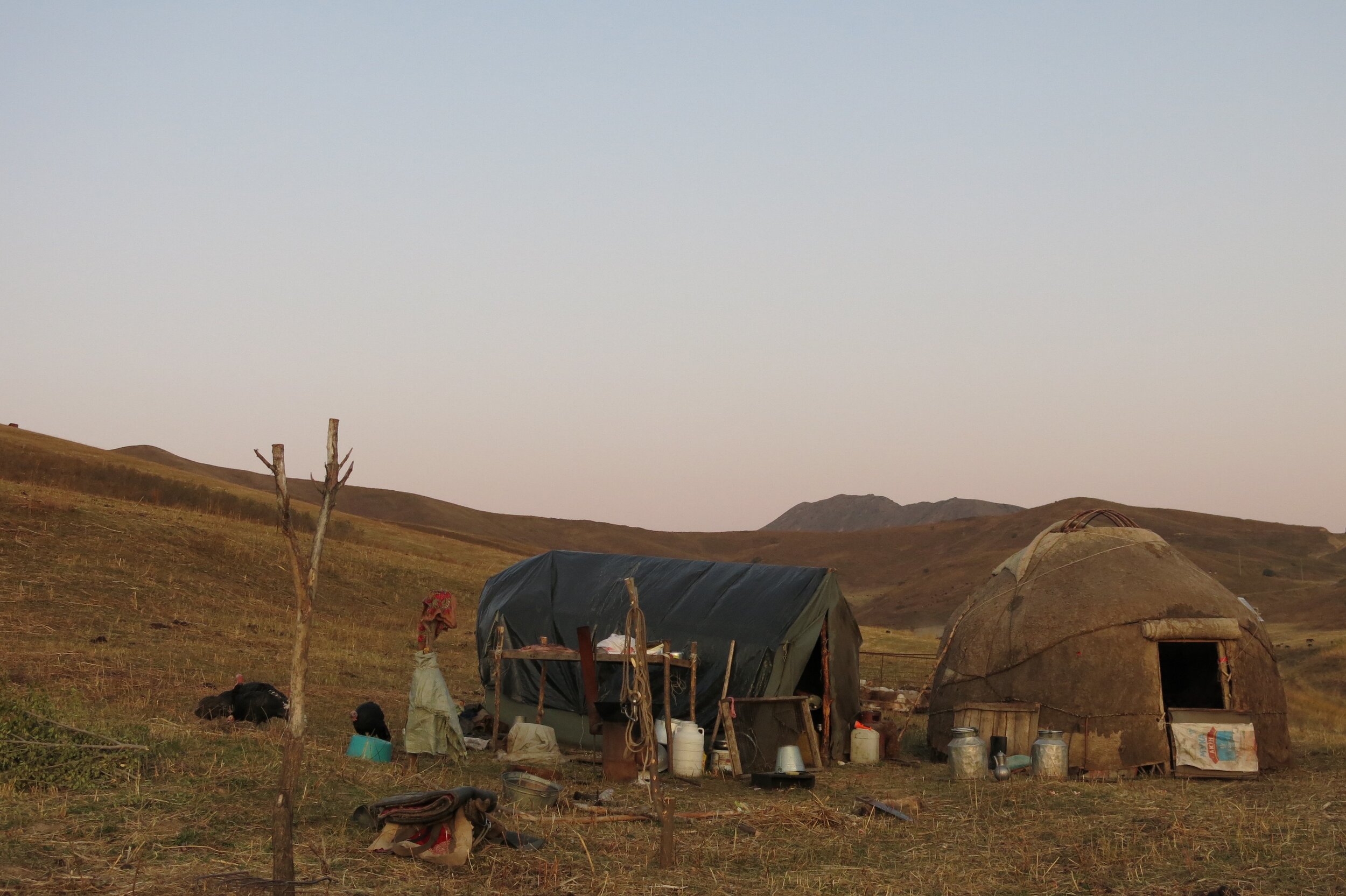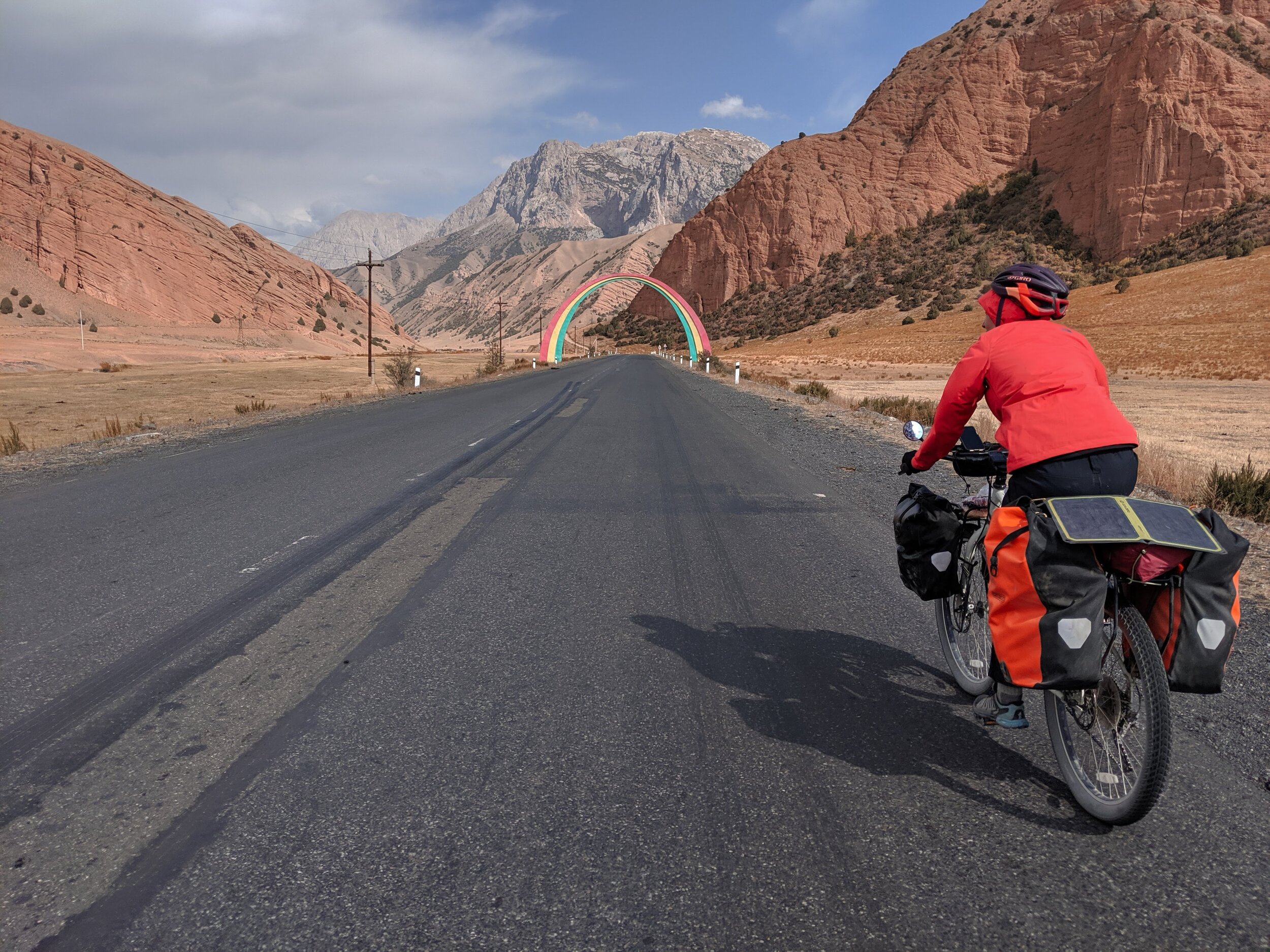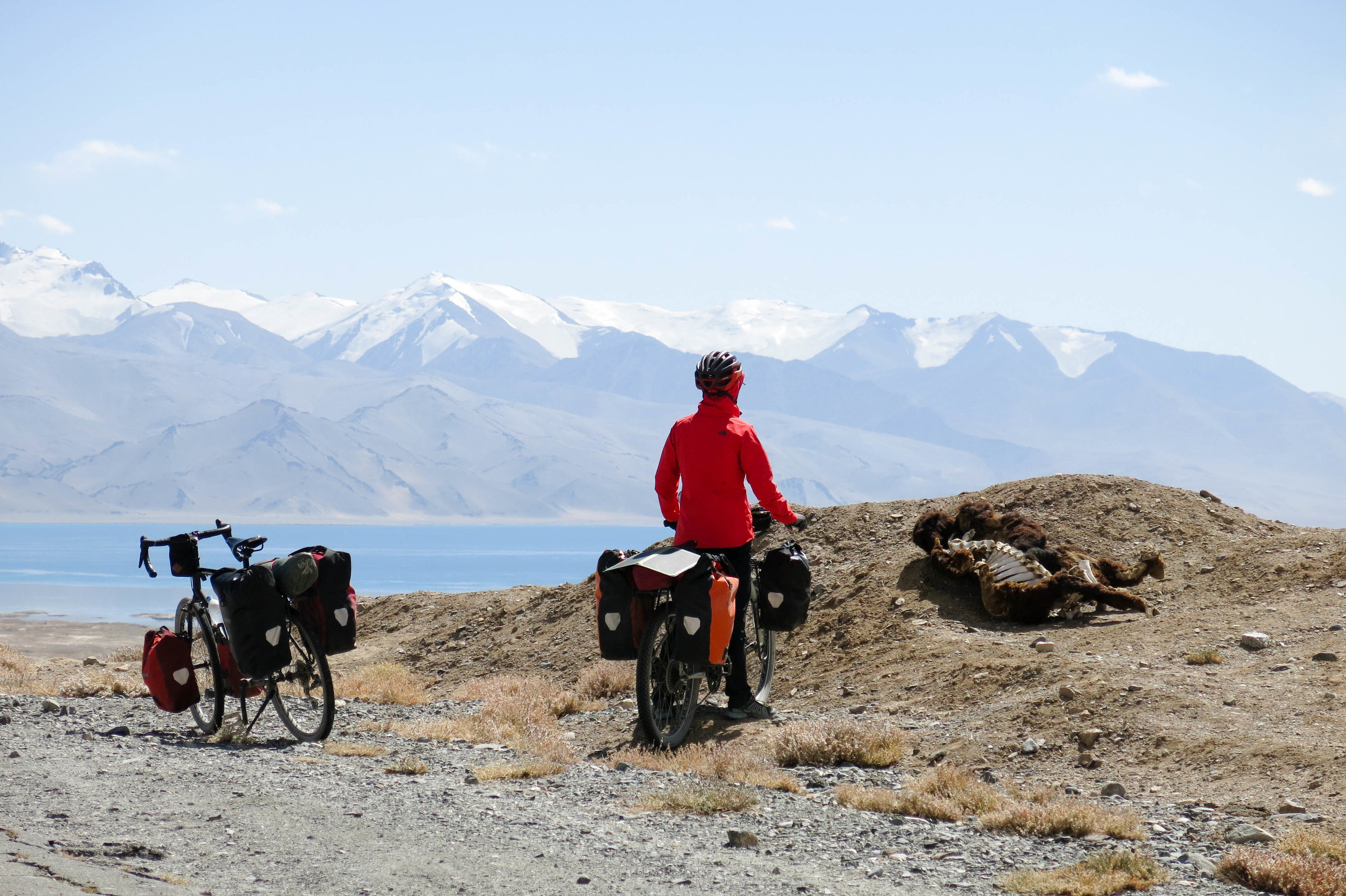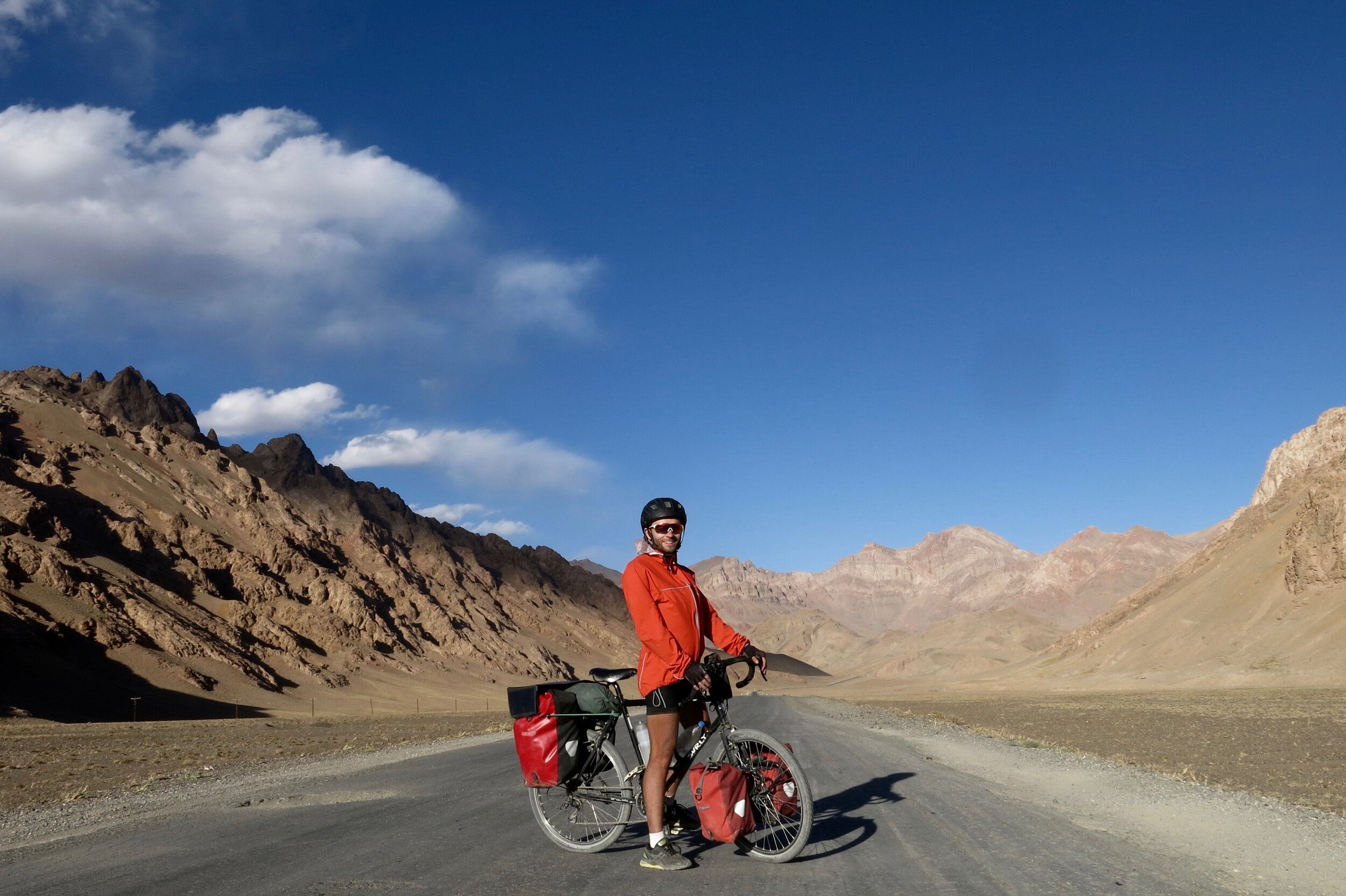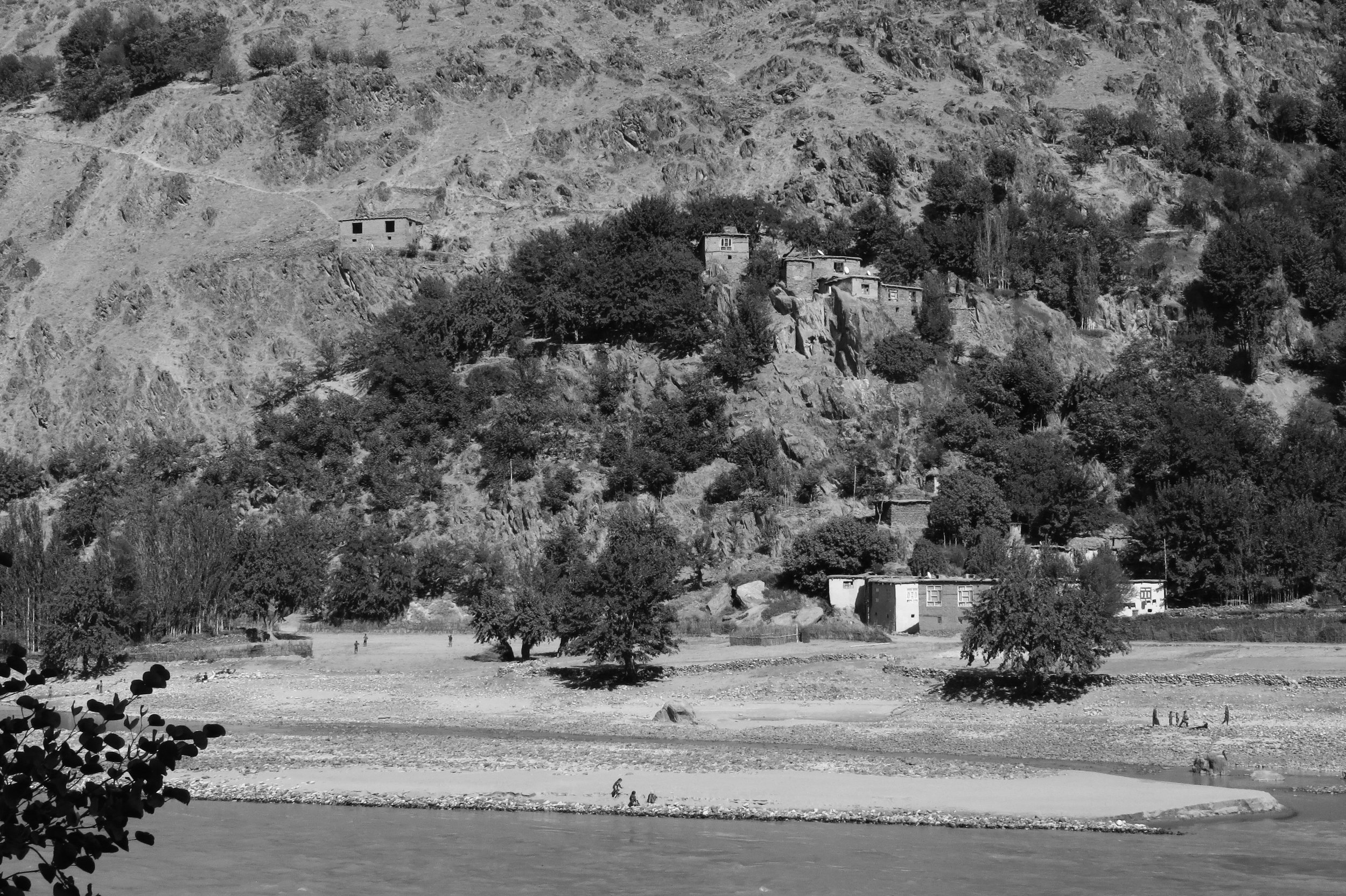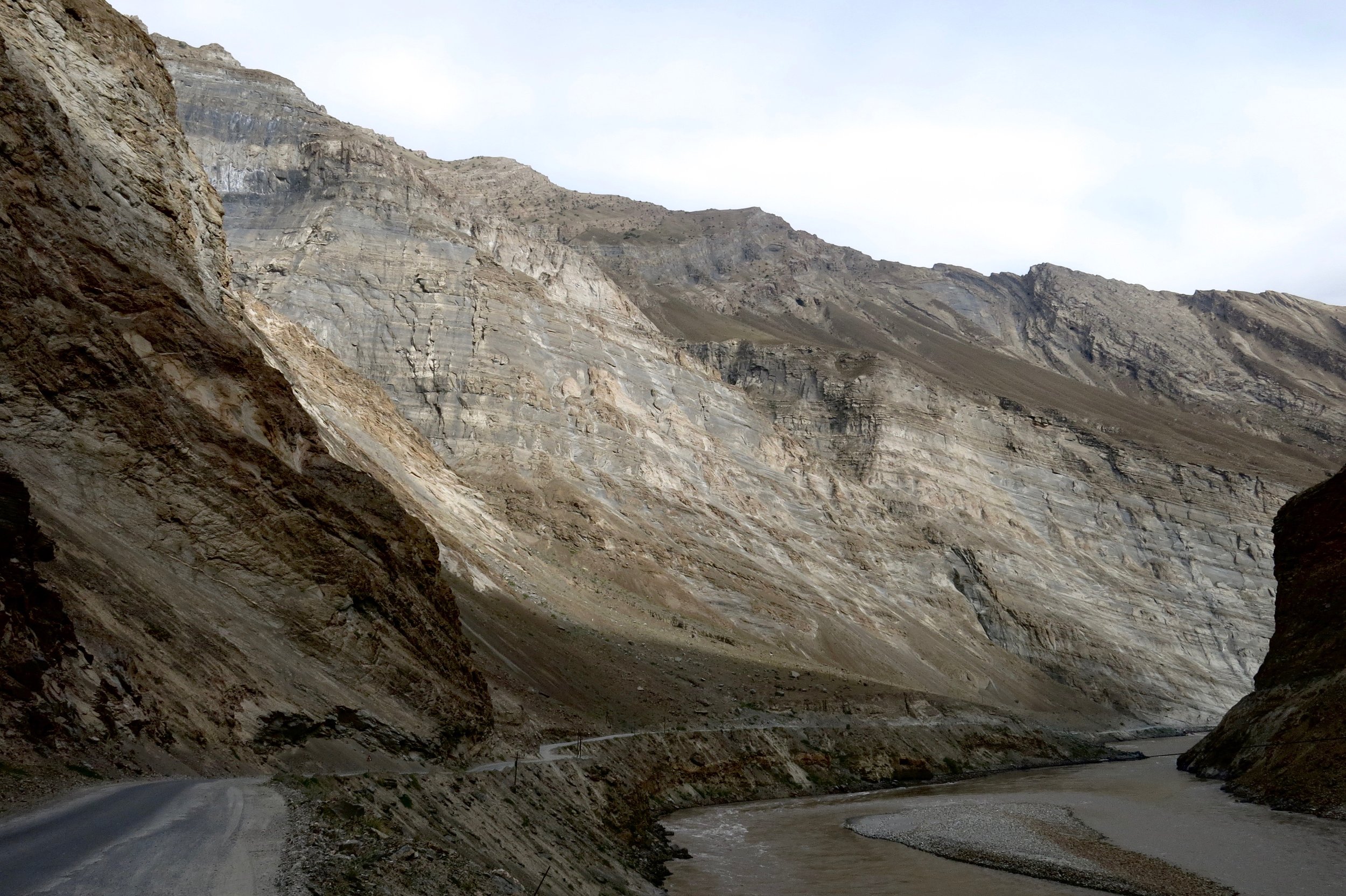The sun had almost dipped below the hills and a chill was creeping out of the forest on either side of me as I cycled down a quiet road in south western Hungary.
My back ached after riding 100km that day, and I was ready to find somewhere to camp.
I arrived at a small village and it felt immediately friendly - small houses painted pale pink and yellow and well-kept gardens, a churchyard with mown grass, an old lady carrying a big bag making her way along the footpath.
This will do, I thought.
On the map I could see a small lake just 1km on, which I thought could provide a more secluded camp where I wouldn’t be pitching my tent right in the middle of the village.
The road turned narrower and coarser as it veered towards the forest.
Two old men sat on the lakeside in the last of the afternoon light and I asked them, “camping?” and gestured along the shore.
“Ninc camping,” they replied.
“Kistolmacs, camping,” came the suggestion. I glanced at the offline map app on my phone. Kistolmacs was 18km away.
“Too far,” I explained, waving my hands to simultaneously illustrate distance, a winding road, a setting sun.
“Ninc camping,” they repeated, pointing down the road, “Maroc village.”
I figured they thought I was after a proper campground and not to camp in a paddock as I planned, so I waved goodbye and carried on, unaware that unlike the tidy village I’d just cycled through, Maroc was a Roma village.
300m further, a gap in the hedge gave way to a large sloping paddock backed by forest.
Wary of the quickly dying light, I swung my bike through the gap and pushed it about 20m from the road. A pyramid of hay bales stood nearby. A fertiliser tanker languished, peeling rust.
The grass was beginning to shine golden as the day’s last beams pushed through the tips of the forested mountains to the south.
Two almost simultaneous thuds startled me, then I laughed when I saw the apples rolling beneath a tree laden with autumn fruit.
I pitched my tent and cooked dinner, pleased to be set up before dark.
A tractor rumbled past and the farmer peered at me over the hedge.
Ah, shit, in my haste to set up camp I didn’t think to conceal myself behind the hedge.
Later, a police car pulled up, then slowly pulled away.
They returned roughly 20 minutes later and the officer in the passenger seat beckoned to me.
I jogged down to the road and greeted them in rudimentary Hungarian. They wanted to see my passport, asked “tourist?”
“I live in Budapest,” I replied, showing them a copy of the passport on my phone.
“You cycle, alone? It isn’t… scary?”
It wasn’t really, I said, but was this area dangerous?
“No, no, not dangerous, not dangerous,” he assured me.
I returned to the tent and settled in for the night as darkness fell. I heard something scurrying around and wondered if it was a pig or maybe a fox.
Rustling around with my sleeping bag and book I didn’t pay much attention to the outside sounds. At around 9.30pm I fossicked around for my toothbrush and toothpaste.
As I was brushing I paused.
There was someone outside the tent.
Slow and deliberate footfalls, distinctly different from the scuffling of four legs, just metres from me through the two thin layers of nylon.
My skin prickled and I felt terror, disbelief.
As the person continued moving slowly around the tent I deepened my voice to a growl and roared a GET THE FUCK OUTTA HERE. It must’ve been convincingly hostile because the footsteps halted, then sprinted towards the road.
I sat frozen, my feet crushed awkwardly under me, swallowing the toothpaste as I strained to hear the outside sounds.
I sent a text to my friend in Budapest, a Hungarian. We’d been joking earlier about vampires, he’d told me to call if I felt in danger and I’d cheerily replied I was “fine, just cold!!”
This time I didn’t waste words.
“OK there is someone out here.”
“I’m not sure what to do.”
He replied almost immediately: “Fuck.”
Followed by, “what do you want me to do?”
I shared my location with him via Messenger and he called the local police.
I remained frozen, busting to pee but terrified to move in the tent in case I failed to hear movement outside. Slowly I unzipped the fly and directed my head torch into the darkness, but its beam fell only metres from the tent.
I felt around for my knife and flicked the blade open, clutching it in my hand as I stared into the misty gloom. I wondered if they’d watched me set up camp. Knew I was alone.
Incredibly, the police arrived in 20 minutes. They were a different pair to the earlier two who had scoped me out, and seemed much more professional. I rang Albert who translated over the phone.
One officer spoke quickly to Albert while his colleague did a slow circle of my tent, shining his torch at the ground.
They said I had chosen the worst possible place to camp - on a “dead end road” near the “Gypsy” or Roma village of Maroc.
But, they said, more dangerous is that it's the middle of mating season, so there are aggressive stags and boars everywhere.
I’d actually seen a 12-pointer earlier that day. It had plunged down the bank from the forest, taken the road ahead of me in three strides then crashed back into the woods.
I’d been delighted at the close encounter with such an impressive beast.
I’m not so much afraid of the animals, I began, but Albert cut me off. “They say you should be.”
One officer pointed his torch beam to the crest of the hill and a pair of eyes glinted back at us.
They asked for my identification, and I’m not in the habit of carrying my passport on bike trips within Hungary, so I showed them a copy on my phone.
This was a problem, they said.
Albert translated - it’s the law that a non-EU citizen must carry their passport at all times. They seemed to miss the part that I hold a Hungarian residency permit, but there was no proving that out here, so then talk began of arresting me.
While one officer rang his superior to decide whether to apprehend me, his colleague kindly held his torch as I hurriedly began to pack up my tent, my fingers clumsy in the cold dew. It was about 7 degrees.
“Hideg,” I said, grasping at my thin vocabulary for something pleasant to say.
“Igen, hideg!” Both police burst into laughter. “Siberia!” One added.
I felt heartened, this wasn’t the sort of cordiality you shared with a person you’re about to arrest.
But then, a call over their radio. Albert, still on the phone, translated - a group fight had broken out in a nearby village and they had to rush there now, or someone might get killed.
They’d be back for me in half an hour.
They gestured apologetically and ran to their car.
So I was alone again, but this time without my tent or the warmth of my sleeping bag.
Feeling exposed standing on the ground, I climbed the rusted tanker, my hands slipping in bird shit and dew, and balanced on its railing.
I’d stuffed my bare feet into my shoes when the police had arrived, so now my toes were freezing.
The black jagged tree tops of the surrounding hills met the navy sky in the slightest change of inky hue.
Despite my proximity to the village, there was no light anywhere. Many Roma settlements are without electricity.
The police were back after about 40 minutes and there was no more talk of arresting me.
I called Albert again and he explained they were to escort me to a safer place.
As the officer accompanied me to the road he flourished an arm skyward at the starry expanse, pointing out Mars and then Venus. He covered his torch to communicate light pollution.
I looked up and nodded, “nagyon szep.”
“Nagyon szep,” he agreed.
I climbed onto my bike and the police tailed me, their headlights illuminating the potholed road. Everywhere was smothering, heavy darkness, but in the hills above the roars of testosterone-fuelled beasts were relentless.
It was less than 2km back to Kiscsehi, the non-Roma village I’d cycled through earlier. The police indicated a patch of grass with a couple of willow trees, backing onto a stream on one side and houses on the other. A dog barked, which comforted me.
The police, now understandably convinced I was an imbecile and seemingly feeling responsible for me, asked if I needed food or water, or warm clothes because I would “die of hypothermia.” I insisted I was fine but they pressed a croissant into my hands, then a bottle of water and bar of chocolate.
They even gave me a small torch and spare face mask.
“For the COVID,” the officer said. I took it graciously despite feeling that COVID was the least of my current worries.
I thanked them and they politely wished me goodnight, it was about 1am.
Thankfully the inside of my tent was dew-free and I pitched it fast, inflated my mattress and bundled into my sleeping bag, fully clothed.
Around me, the hills echoed with a cacophony of honking boars and groaning stags. It was deafening.
I loved cycling the beech and pine wooded hills and marshy meadows of Zala county.
A place that was once the centre of crude oil production that dried up, leaving abandoned machinery hidden in the shadowy forest.
That industrial past is long forgotten now, and there are scant job opportunities for the people who’ve lived here in poverty for generations.
My Hungarian friends think the person lurking around my tent was probably a Roma person planning to steal my bike.
I knew of the socioeconomic divide in rural Hungary, but it was unnerving to me that two villages can be 2km apart, yet one’s safe and one’s not.
Where the police moved me to - and where I should’ve camped all along
Two lessons I have learned:
No camping (or cycling) near forested parts of Hungary during the rutting season.
And to discard my New Zealander reluctance to camp in plain sight.
At home the cops would invariably warn you off camping in the middle of a village green.
In Hungary, they are horrified if you don’t.


